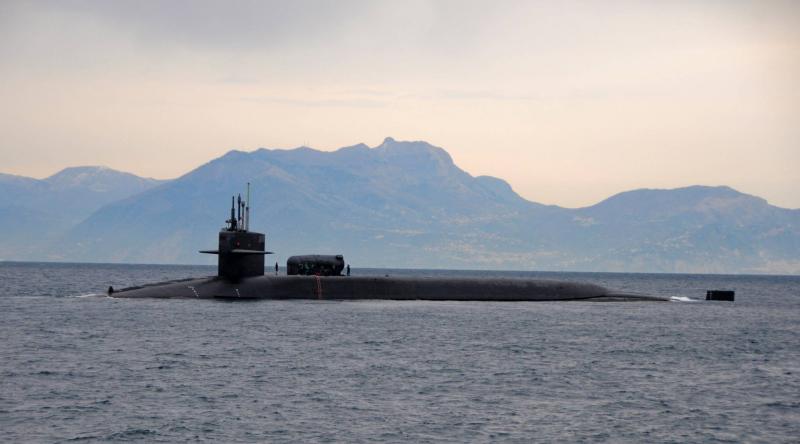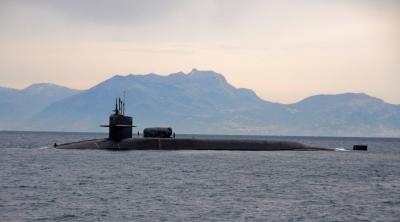A spokesperson for the U.S. Navy revealed on Saturday that the United States has sent a submarine capable of carrying up to 154 Tomahawk missiles to the Middle East, appearing to be a precautionary measure towards Iran following recent tensions. The spokesperson for the Fifth Fleet, stationed in Bahrain, Timothy Hawkins, stated that the nuclear-powered submarine passed through the Suez Canal on Friday, indicating that "the deployment of this submarine aims to help ensure maritime security and stability in the region." The Fifth Fleet conducts patrols in the Strait of Hormuz, the narrow outlet of the Arabian Gulf through which 20% of total oil shipments transit. The region also includes the Bab el-Mandeb Strait off Yemen and the Red Sea, extending to the Suez Canal.
**Capabilities of Florida**
The Florida guided missile submarine falls under the Ohio class and has long been one of the most versatile and secretive platforms in the U.S. Navy fleet; it also carries 66 special operations personnel on board. The Florida, equipped with guided missiles, has been named after the 27th state of the United States (Florida) since 1983. The USS Florida entered Norfolk Naval Yard in July 2003 for refueling and conversion from a ballistic missile submarine to a cruise missile submarine. It is classified as one of four guided missile submarines in the U.S. Navy fleet and has completed over 50 patrols before being converted to a guided missile submarine. Additionally, it is equipped with advanced communication capabilities.
The Florida submarine operates with two crews (Blue and Gold), consisting of approximately 160 sailors who rotate to operate the submarine, typically deploying with the ship for three months before switching. The Blue crew previously returned the submarine to its home port.
On March 19, 2011, in conjunction with U.S. Navy warships and submarines, Florida launched 93 Tomahawk cruise missiles targeting Libyan air defense systems as part of Operation Odyssey Dawn. This operation was the codename for the U.S. role in the international military operation in Libya to enforce United Nations Security Council Resolution 1973 during its initial phase from March 19-31, 2011, marking Florida's first combat action.
The Tomahawk cruise missile is a long-range land-attack missile, jet-powered, subsonic, and primarily used by the U.S. Navy from ships and submarine-based land attacks. The United States, the United Kingdom, and Israel have repeatedly accused Iran of targeting oil tankers and commercial ships in recent years, which Tehran has denied. The U.S. Navy has also reported a series of tense maritime encounters with Iranian forces, which it described as dangerously aggressive.
**Escalation of Tensions in Eastern Syria**
Last month, the United States launched airstrikes on Iran-backed forces in Syria following a rocket attack that killed an American contractor and injured seven other Americans in the northeast of the country. After these strikes, President Joe Biden stated, "The United States is not seeking conflict with Iran but is prepared to act forcefully to protect its people."
Tensions between the U.S. and Iran have escalated since former President Donald Trump withdrew from the 2015 nuclear agreement between Iran and global powers, which called for the easing of sanctions in exchange for Tehran curbing its nuclear activities under strict monitoring. Efforts by President Biden's administration to revive the deal hit a deadlock last year.
**Iranian Drones**
Subsequently, tensions escalated with Iran supplying Russian forces with offensive drones in Ukraine, and with Israel and Iran intensifying their ongoing shadow war across the Middle East. In addition to approaching Moscow, Tehran sought to improve relations with China, which brokered a deal last month to restore diplomatic relations between Tehran and Riyadh.
After the announcement of the agreement, U.S. Secretary of State Antony Blinken cautiously praised China for mediating the deal between Iran and Saudi Arabia, stating it could benefit the region. Blinken remarked in a press statement following the agreement, "From our perspective, anything that helps to reduce tensions, avoid conflict, and deter any dangerous and destabilizing actions by Iran is a good thing."




